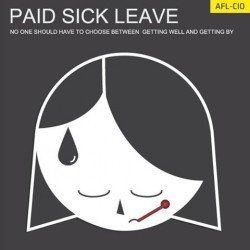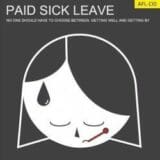

Meanwhile, the median wage continued to drop, adjusted for inflation.
What’s less well-known is that you and I and other taxpayers are subsidizing this sky-high executive compensation. That’s because corporations deduct it from their income taxes, causing the rest of us to pay more in taxes to make up the difference.
This tax subsidy to corporate executives from the rest of us ought to be one of the first tax expenditures to go, when and if congress turns to reforming the tax code.
We almost got there 20 years ago. When he was campaigning for the presidency, Bill Clinton promised that if elected he’d end the deductibility of executive pay in excess of $1 million.
Once in office, though, his economic advisers urged him to modify his pledge to allow corporations to deduct executive pay in excess of $1 million if the pay was linked to corporate performance – that is,
» Read more about: Why Taxpayers Are on the Hook for Corporate CEO Pay »


I grew up playing soccer and everyone I knew played it. It was the highlight of the week – AYSO owned my city, Ventura, and most cities across Southern California. So I never understood why most Americans don’t love soccer the way the rest of the world does. Until last Sunday.
Of course, I’d heard all of the usual complaints. “It’s a low-scoring, boring, non-physical game.” Is it “low-scoring”? Well, from the American perspective, it is. The average final score is about 2 to 1. But American football could be a low scoring game if touchdowns only gave a team one point instead of six. Football allows for three points just for kicking a ball between two posts.
But is it “boring”? Absolutely not! Who can forget when France’s Zinedine Zidane was sent off the 2006 World Cup final game for head-butting Italy’s Marco Materazzi‘s chest in retaliation to his verbal insults of Zidane’s sister.


I am of course glad to see President Obama focus the country on what he correctly identifies as the most pressing national problem, the crushing of the middle class. The solution he laid out in his address at Knox College, a middle-out economics which sees the middle class as the engine of the economy, is both good economics and a powerful political message. It is what progressives and Democrats need to keep emphasizing over and over again, both rhetorically and in their legislative agendas.
When it came to the broad foundations of policy, the president’s outline of the pillars of a strong middle class was on point: good jobs, quality education and job training, affordable health care, good housing, retirement security and strong neighborhoods.
Still, I found the speech disappointing. The president only nibbled at the biggest change in our economy, the relentless decline in good jobs.
» Read more about: Pillar Talk: America’s Recovery Foundations Are Cracked »


 More than four in 10 private-sector workers and 80 percent of low-wage workers do not have paid sick days. This means people, especially women who are more likely to work in low-wage jobs, constantly have to choose between their health and a paycheck.
More than four in 10 private-sector workers and 80 percent of low-wage workers do not have paid sick days. This means people, especially women who are more likely to work in low-wage jobs, constantly have to choose between their health and a paycheck.
A post in Jezebel, brought to you by the AFL-CIO, explains why the lack of paid sick days causes a ripple effect on our health and communities:
“In fact, more than 80 percent of low-wage workers don’t receive a single paid sick day all year. This contributes to the creation of a sickness loop: Contagious kids go to school because mom can’t stay home with them; expensive emergency room trips are made that could’ve been prevented; employees show up to work and spread viruses to their customers and co-workers.
When young women can’t stay home to get their sleep and soup on,
» Read more about: Sickening: 80% of Low-Wage Workers Lack Paid Sick Days »


Valley after valley,
as if some primeval fiend
dragged its talons here
as it fell from the coastal shelf.
Eighty years ago, after the gold
and copper towns ghosted,
before Gunsmoke came to Vasquez Rocks,
William Mulholland’s dam gave out
and flushed the canyons clean
54 miles to Ventura, and the ocean.
We’ve seeped in, bloomed
like thrush in hollows
flecked with rust-capped roofs,
and bone-white stucco.
Now, across the 14’s eight lanes,
vast scabs of sooty earth
and blacker scrub proclaim:
the land finds ways to slough infection.
——————————————————–——————————————————–
David Eadington is a fifth-generation Southern Californian who lives in West L.A. His work has appeared in several places, including Xelas Magazine and Check Other. He was named one of Los Angeles’


News that George Zimmerman (a “white Latino”) got away with shooting and killing Trayvon Martin, a black teenager armed with nothing more than a bag of Skittles, brought joy to many conservatives. Some went so far as to say “God Bless George Zimmerman.”
Less than 24 hours before the Zimmerman verdict, Grammy-winning singer Marc Anthony, a dark-skinned Latino, was viciously lambasted — for having had the audacity to sing ‘God Bless America’ at Major League Baseball’s All Star Game. One tweeted “Why is some Spanish fuck singing ‘God Bless America’ at the all-star game?” Another wrote, “C’mon MLB. How you gonna pick a Mexican to sing ‘God Bless America’? Was Castro unavailable?”
Anthony happens to be a born-and-bred American citizen of Puerto Rican descent.
This was as ironic as it was painful, seeing as how Irving Berlin, one of America’s greatest songwriters —


In 1909, as one of the scores of short pictures he turned out that year, D.W. Griffith directed A Corner in Wheat, a 14-minute film adaptation of a story by the populist antitrust novelist Frank Norris. In it, a Wall Street speculator buys up so much of America’s wheat and keeps it off the market that prices soar and millions — including the farm family Griffith shows laboring in the fields — go hungry.
Americans’ long-standing apprehensions about banks getting control of the stuff of life are, as we’ve learned again in recent weeks, generally justified. The latest episode of Wall Street’s manipulation of commodity prices was revealed Sunday in a remarkable New York Times article by David Kocieniewski that showed how Goldman Sachs, just by warehousing 1.5 million tons of aluminum, has managed to raise the price of every beer and cola can the world over.


If 2012 was the year of the woman, 2013 is the year of the working mom. And that’s why I’m headed to California. Last week, House Minority Leader Nancy Pelosi along with Congresswomen Rosa DeLauro, Doris Matsui and others announced a new economic agenda for women and families, built on three key pillars for driving women’s economic advancement: 1) equal pay for equal work, 2) work-family balance, including paid sick leave and a livable minimum wage, and 3) access to quality, affordable child care.
As many have noted, these priorities are not new ideas. Women have been advocating for decades for these policies, because they work, they are fair and they are critical to the success of our nation. What is new is the momentum behind putting these practical solutions to work so that we can kick-start an economy that continues to languish and restore the American promise for our children — that their futures should be brighter,


I am a single mother of four. Every day my heart aches with worry about my kids and their futures. Today I went on strike to protest retaliation. I did it for my children.
Please consider a donation of $50 or more to support workers while we are on strike.
I work in a warehouse moving Walmart merchandise and I make $8 an hour. In a good week I earn $300. Our rent alone is $800 a month. Going on strike means no paycheck, but your support can help us during this time.
The math doesn’t add up. My coworkers and I cannot support our families on these wages, but when we have spoken up about the poverty we face and the dangerous working conditions inside the warehouse, we have been targeted. We’ve had enough. The warehouse managers follow us around, they have installed cameras to watch us constantly,
» Read more about: ‘Today I Went on Strike’ — A Strike Fund Appeal »


Breaking News: Warehouse workers who move suitcases are on strike at Walmart luggage and apparel subcontractor Olivet International. The bulk of the Riverside County facility’s inventory is sold by Walmart and the strikers hold the retail chain equally culpable for the poor working conditions employees claim exist at Olivet. The work stoppage is aimed at retaliation allegedly suffered by workers who drew public attention to safety risks at the warehouse.
According to a post by Josh Eidelson that appeared today on the Nation‘s website:
Today’s strike is backed by Warehouse Workers United, a project of the Change to Win union federation. It comes two months after 21 Olivet warehouse employees filed a formal complaint with the California Division of Occupational Safety and Health, alleging rampant safety violations: emergency exits blocked by boxes and merchandise; forklift brakes, seatbelts, and horns that don’t work;
» Read more about: Walmart Contract-Warehouse Workers Go on Strike »